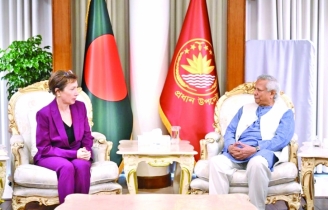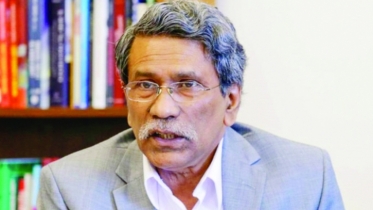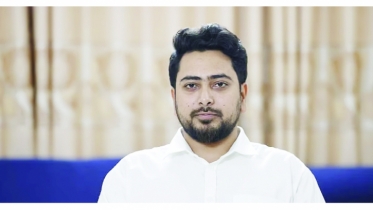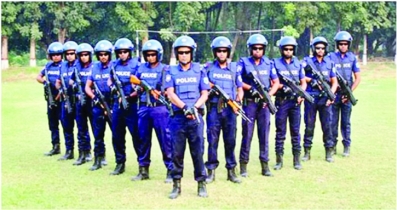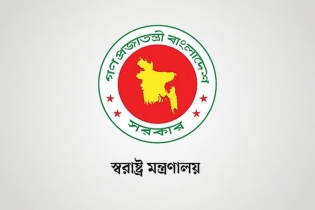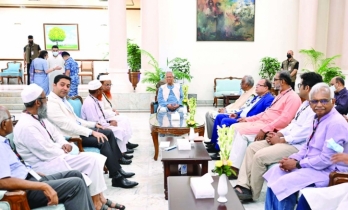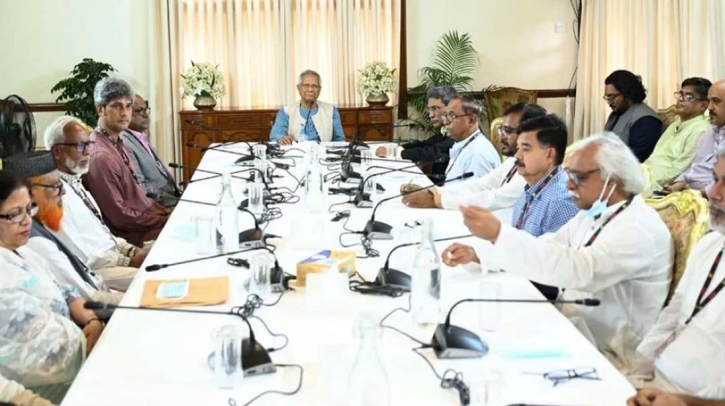
Chief Adviser Prof Muhammad Yunus held consultations with 17 political parties on Tuesday and Wednesday, seeking advice on law and order and the upcoming election amid recent unrest.
While parties pledged unity against fascism, leaders raised concerns over administrative lapses, the absence of a clear election date, and alleged bias towards certain parties.
The meetings came in the aftermath of Monday’s Bangladesh Air Force fighter jet crash at Milestone School and College in Uttara, which killed and injured numerous students.
The tragedy, followed by student protests at the secretariat and Milestone campus, intensified pressure on the caretaker government to ensure order and stability.
The latest round of talks held on Wednesday, where Prof Yunus sat with 13 parties and alliances, including Ganosamhati Andolon, Gono Odhikar Parishad, AB Party, Communist Party of Bangladesh (CPB), Bangladesh Socialist Party (BaSaD), JSD, Liberal Democratic Party (LDP), Revolutionary Workers Party, Gono Forum, and the 12- Party Alliance.
The meeting, held in Dhaka, followed earlier discussions at the Foreign Service Academy on Bailey Road, where several of these parties had already placed reform proposals before the National Consensus Commission.
The back-to-back dialogues come after the backdrop of Monday’s tragic fighter jet crash at Milestone School and College in Uttara, which claimed dozens of kids' lives, triggering student protests and a renewed debate over governance failures.
“One year has not passed since the July uprising, yet signs of conspiracy from defeated forces are surfacing,” Prof Yunus warned, according to a statement issued by his press wing.
“Differences and rivalries aside, political unity against fascism must be made more visible, or they will exploit these cracks,” he added.
All 13 parties echoed support for this stance, calling for regular all-party meetings to confront threats to democracy and ensure a credible election.
AB Party Chairman Mojibur Rahman Monju said the country’s institutions must be shielded from authoritarian relapse.
“We stressed that constitutional appointments—beyond just the Election Commission—must be enshrined in the constitution, from the Anti-Corruption Commission to the PSC and Auditor General’s office. If the process is constitutional, fascism cannot rise again,” he said.
However, in the meeting with Chief Adviser Dr Muhammad Yunus, political party leaders expressed their dissatisfaction with the National Citizen Party (NCP). They claimed that the government is giving extra benefits to the NCP, raising questions about fair elections.
Liberal Democratic Party (LDP) Secretary General Shahadat Hossain Selim, who also represents the 12-Party Alliance, pressed for a quick election announcement.
“We urged the chief adviser to declare the polling date—preferably by August 5. This uncertainty only fuels speculation,” he said, criticizing what he termed “unfair privileges” given to the National Citizen Party (NCP), which many parties allege is receiving undue government protocol.
From the left bloc, Communist Party of Bangladesh (CPB) General Secretary Comrade Ruhin Hossain Prince warned: “Unless the election date is fixed, the crisis will deepen. A level playing field is crucial—no party should appear favoured by the government.”
BaSaD’s Bazlur Rashid Firoz echoed this, saying: “The government cannot act like a patron of one party and expect others to trust its neutrality. NCP’s visibility is a glaring example of this bias.”
Saiful Haque, general secretary of the Revolutionary Workers Party, said: “The country is moving towards chaos because the government appears weak. We told Prof Yunus to hold repeated dialogues and ensure a fair election atmosphere.”
LDP’s Redwan Ahmed added: “Political divisions may exist, but for the country’s sake, we can unite again. This government is already perceived as the weakest; any bias will worsen the gap between parties.”
Ganosamhati Andolon Chief Coordinator Zonayed Saki demanded immediate clarity on election reforms. “People are anxious. Announce the date, prove neutrality, and create a level playing field,” he said.
Gono Odhikar Parishad’s Nurul Haque Nur went further, warning: “Fallen forces like the Awami League will exploit unrest if the interim government does not act decisively.”
Three common priorities
Across both meetings, political leaders underscored three common priorities-- strengthening law enforcement to prevent destabilization, ensuring neutrality by avoiding favouritism toward any party, and declaring the election schedule without delay.
Prof Yunus said: “This unity is our strongest weapon against those who seek to disrupt democracy. We must move forward together, with urgency and with fairness.”
Earlier, on Tuesday, Prof Yunus held an emergency meeting at State Guest House Jamuna with BNP, Jamaat-e-Islami, Islami Andolan Bangladesh, and NCP leaders, focusing largely on the security situation and the aftermath of the Milestone tragedy.
After the meeting, Law Adviser Asif Nazrul said the parties had conveyed two core demands: “They want the government to take a firmer stance on law and order, and they want the election roadmap expedited.”
He added that all parties assured there was no division within the anti-fascist alliance.
Jamaat’s Nayeb-e-Ameer Syed Abdullah Muhammad Taher urged proactive steps to prevent unrest.
“Prevention is better than cure. We asked the government to tighten intelligence and coordination to avert incidents before they happen. Prof Yunus assured us the advisers will work with full determination,” he said.
BNP Secretary General Mirza Fakhrul Islam Alamgir, who attended with BNP’s Standing Committee member Amir Khasru Mahmud Chowdhury, acknowledged the government’s limitations but called for more regular engagements.
“The chief adviser calls us only during crises. These consultations should happen more often. We are committed to cooperating for a democratic transition,” he said, while also pressing for an election date in February–March as earlier pledged.
Leaders from Islami Andolan Bangladesh and NCP also reaffirmed their support for the interim administration, vowing to remain united against any “fascist resurgence.”

